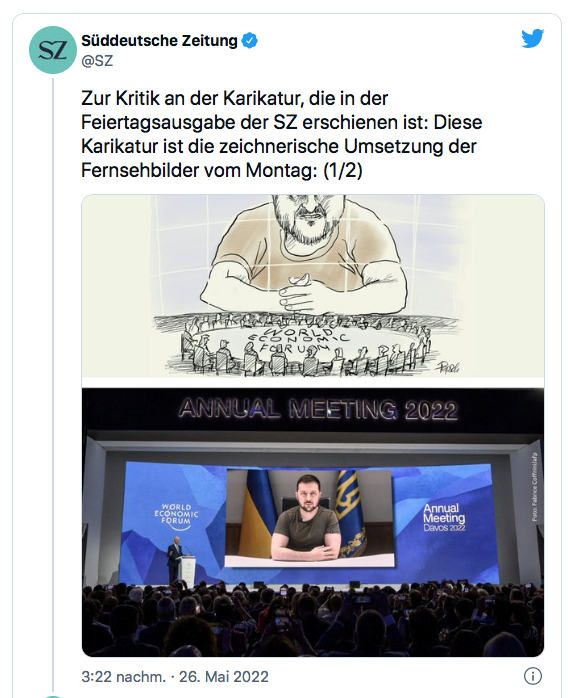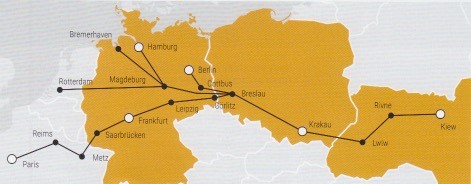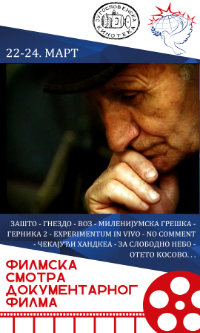WEF Davos 2022: "History at a turning point"?
Wolfgang Effenberger
In the last week of May, this year's conference of the World Economic Forum took place under the motto "History at a Turning Point".
For the first time after a two-and-a-half-year pandemic break, the elite from politics, business and society had met not in snowy mountains but in a rain-soaked spring landscape. Whereas in the past more than 3,000 exponents of the international leadership had come, in 2022 there were a third fewer. But the expectations of 84-year-old founder Klaus Schwab were all the higher:
"Under the motto 'History at a Turning Point,' this year's annual meeting will be the most topical and important since the World Economic Forum was founded more than 50 years ago."(1)
With the war in Ukraine in mind, Schwab posited:
"Russia's attack will go down in the history books as the collapse of the post-World War II and Cold War world order."(2) By that definition, it was almost inevitable that at the May 23 Davos kickoff, Ukrainian President Volodymyr Selenskyj would join in on an oversized screen and use his war-and-fight rhetoric to rally attendees for tougher sanctions against Russia. The year before, none other than China's President Xi Jinping had opened the then-virtual WEF event.
In his caricature, Austrian cartoonist Pepsch Gottscheber placed Selenskyi's dominant appearance in a frame showing an oversized and menacing-looking Selenskyi in front of a dwarfed-looking round table(3) representing the WEF.
The cartoon, published in the Süddeutsche Zeitung on May 26, sparked a crossfire of criticism(4) which culminated in accusations of anti-Semitism.(5)
A day later, Süddeutsche Zeitung responded to the massive criticism with a brief statement on twitter.

While guests from Russia were misssing 2022, a large delegation from Ukraine traveled to Davos, including several members of parliament and the mayor of Kiev, Vitali Klitschko.
In Davos, the private British TBD Media Group -- founded in 2014 and now operating globally - also met with the supposed thought leaders preparing decisions for the future. According to its own statements, the TBD Media Group helps companies, organizations and governments communicate their messages and goals in a "human and direct way."(6) To do so, it runs global campaigns "that address key global challenges such as climate change and technology gaps."(7)
Commenting on the importance of Davos, Paolo Zanini, founder and CEO of TBD Media Group, said, "Davos is where decisions are made about our planet's today and tomorrow." He said TBD Media is proud to help make the philosophies and decision-makers accessible in an engaging and insightful way. Understanding the motivations of the people driving change is essential to effecting positive change, he said. "History is truly at a tipping point with the shockwaves of Covid, the conflict in Ukraine and the climate crisis, and we've been talking to the people who have control over the levers of action. We found out what they plan to do, how they plan to do it, and most importantly, why they make the decisions they do. We all want a cleaner, more just, and more peaceful world. To achieve that, we need to know the people who will be involved in making it happen."(8)
The opaque TBD Media Group thus acts as a mouthpiece, amplifier and PR manipulator. It was founded in the same year when on the Maidan the elected Ukrainian government had to flee in a coup orchestrated by the West(9) and in the USA the long-term strategic concept TRADOC 525-3-1 "Win in a Complex World 2020-2040" came into force, which formulates the reduction of the "threat" from Russia and China as the primary goal of the armed forces.
According to independent geopolitical analyst and author of numerous books Pepe Escobar, at Davos and beyond, NATO's optimistic narrative is being played like a broken record "that never changes its tune while Russia wins victories on the ground that could bring down the Atlantic order."(10)
Klaus Schwab had presented Ukrainian President Volodymyr Selenskyj in Davos with a glowing tribute, emphasizing that Selenskyj is supported by "the whole of Europe and the international order." In the process, according to Escobar, "the struggle of the West (12 percent) against the rest (88 percent) continues to come to a head in Ukraine."(11)
In Davos, German Chancellor Olaf Scholz (SPD) called Russia's war of aggression on Ukraine a failure and, referring to President Vladimir Putin, said, "He has already failed to achieve all his strategic goals."(12) But how would Scholz know Putin's strategic goals? In comparison with the wars of aggression of the USA together with the coalition of the willing - Yugoslavia 1999, Afghanistan 2001, Iraq 2003...- which were contrary to international law, Putin's war of aggression seems to have failed. The "successes" of the USA were produced in each case after murderous bombardment according to "Shock and Awe" from the air. After that, resistance on the ground was largely broken.
In the event of an imminent Russian defeat, Scholz rightly fears the use of nuclear means, and in the event of a possible victory, he warned of the dramatic consequences: "Putin wants to return to a world order in which the strongest dictate what is right; in which freedom, sovereignty and self-determination are just not for everyone," and he added: "That is imperialism!" It is, he said, an "attempt to bomb us back to a time when war was a common means of politics, when our continent and the world lacked a stable peace order."(13)
This worldview of Olaf Scholz needs no comment in its superficiality and obliviousness to history and gives rise to the worst fears.
If there were already numerous armed interventions by both superpowers during the Cold War, the frequency of such interventions even increased after the dissolution of the Warsaw Treaty Organization (Warsaw Pact) and the Soviet Union: "The U.S. waged wars in Serbia, Afghanistan, Iraq, Libya and Syria, Russia in Georgia, Ukraine and (other parts of) Syria. In several cases, one of these powers sought to undermine the other by arming its military adversaries, often on a significant scale."(14)
The war in Ukraine has a long antecedent. On December 11, 2017, the foreign and defense ministers of 25 European member states signed the agreement on "Permanent Structured Cooperation" in the field of security and defense, known as " PESCO".
According to the German Ministry of Defense, the aim is for the EU "to be able to act in a security environment that has become more acute, especially since 2014."(15) The agreement was signed in December 2017.
In addition to regularly increasing the defense budget, the signatories to the PESCO agreement have committed themselves, among other things, to improving the sharing of existing capabilities and further enhancing the interoperability of EU battlegroups. In the EU's broad civil-military toolbox, priority is given to expanding military-use infrastructure to the east. So the modernization of the rail line from Bremerhaven - where U.S. tanks are transferred from ship to rail - across the Neisse River to Wroclaw and into Ukraine to Kiev is by no means accidental.(16)

Source: DB Netz AG in Aufgewacht Das Politikmagazin für Sachsen, Erstausgabe 2022, S. 34
To speak of a turning point in history today is more than negligent and will torpedo any readiness for peace. The turning point came after the dissolution of the Warsaw Pact and the eastward expansion of NATO, which very early on wanted to integrate Ukraine or Georgia into the alliance.
So far, however, there has been no direct conflict between the forces. But now the conflict is taking place right on Russia's doorstep (memories of the Cuban Missile Crisis may be allowed here). U.S. support of Ukraine through targeted reconnaissance, command support as well as advisors to Ukrainian forces, if not through the covert use of mercenaries, has created a different dimension. Russia now feels existentially threatened. The step toward expanding the war to the point of a possible nuclear war is not far off. For Russian Security Council Secretary Nikolai Platonovich Patrushev - head of the FSB domestic intelligence agency from Aug. 9, 1999, to May 12, 2008 - "the U.S. and U.K. governments, controlled by big business, are causing an economic crisis in the world and starving millions of people in Africa, Asia and Latin America by restricting their access to grain, fertilizer and energy resources. Through their actions, they are provoking unemployment and a migration catastrophe in Europe. They are not interested in the prosperity of European countries and are doing everything to push them off the pedestal of economically developed countries. And in order to control the region unconditionally, they put Europeans on a two-legged chair called NATO and EU, on which they balance contemptuously."(17) According to Patrushev, it is all about increasing the wealth of a group of tycoons in the City of London and on Wall Street.
A look at current financial flows seems to confirm this. For example, the financial elites in the U.S. and the U.K. seem to have little interest in settling the conflict. Since Putin's attack on Ukraine, the U.S. has achieved almost all of its goals:
- The NATO alliance is stronger than ever and northern expansion is imminent
- U.S. troop buildup in Europe
- Arms spending is fueling the military-industrial complex
- The development of Franco-German fighter planes has been halted
- The Nord Stream project is finished
- Germany's rapprochement with Russia is torpedoed in the long term
- Germany will buy expensive liquefied gas from the USA
- Germany will do without Russian gas, oil and coal
- Russia is weakened by the war and sanctions
- A regime change in Russia becomes possible
In the familiar style of the Anglo-Saxons, Patrushev said, today the U.S. dictates its terms to the world and disregards the sovereign rights of other states. "They disguise their actions with words about the struggle for human rights, freedom and democracy," but in reality they represent the interests of a small moneyed elite.
After Selenskyj's appearance, 98-year-old former U.S. Secretary of State and political scientist Henry Kissinger recalled in Davos that when the Ukraine crisis erupted in an armed coup in Kiev eight years ago, he had advocated that Ukraine become a neutral state and a "bridge between Russia and Europe, not a front line of factions within Europe."(18)
But that was not what the masterminds of the $5 billion coup had in mind. After all, the indispensable goal was the integration of the entire Ukraine into the West.
Kissinger also told the Daily Mail that the West should not contribute to Russia's defeat. He warned against further Western intervention in the Ukraine war and against an escalating confrontation between Beijing and Washington.
The fear of those who notice the writing on the wall that the war will drag on and possibly expand is justified. In parallel, inflation is soaring to previously unseen heights. The specter of impoverishment is again looming.
In the early 1980s, people in Germany recognized the threat posed by the Pershing II buildup. Millions demonstrated in the cities or formed human chains. Although today the threat of war has increased significantly, hardly anyone can be seen on the streets. Is this due to the lack of education by the media? Is the subtle public propaganda so successful or are people just tired?
Oscar Lafontaine, at any rate, is convinced that in the current situation it would be necessary "to take to the streets again in large numbers in the tradition of the peace movement of the 1980s or the demonstrations before the Iraq war."(19)
Notes
1) Kathrin Hondl: Zeitenwende in Davos 22.05.2022
www.tagesschau.de/ausland/europa/weltwirtschaftsforum-davos-121.html
2) Ebd.
3) Hat sich der Zeichner hier vom Cover „Die unterschätzte Macht“ inspirieren lassen?
4) meedia.de/2022/05/27/sz-wegen-selenskyj-karikatur-in-der-kritik/
5) www.t-online.de/nachrichten/deutschland/gesellschaft/id_92263686/sz-karikatur-vorwurf-des-antisemitismus-das-gehoert-nicht-in-eine-zeitung-.html
6) www.presseportal.de/pm/136020/4834593
7) www.tbdmediagroup.com
8) Der Welt ein Fenster zu den Diskussionen in Davos öffnen
www.wallstreet-online.de/nachricht/15516897-welt-fenster-diskussionen-davos-oeffnen
9) Sowohl in der Ukraine als auch in Serbien arbeitete Freedom House eng mit lokalen Gruppen zusammen, die für friedliche demokratische Revolutionen verantwortlich waren Zitiert aus www.nrhz.de/flyer/beitrag.php?id=13484 (Original unter www.freedomhouse.org/template.cfm?page=249 (abgerufen am 18. Mai 2008) nicht mehr im Netz). Das überparteiliche Freedom House wurde am 10. November 1941 - einen Monat vor Kriegseintritt der USA - von Eleanor Roosevelt, Frau des demokratischen Präsidenten Franklin Roosevelt, und dem republikanischen Kandidaten von 1940, Wendell Willkie, gegründet. Als Ursache gibt Freedom House die zu dieser Zeit hoch im Kurs stehenden isolationistischen Tendenzen an. Zunächst sollte der Nazismus, das totalitäre Böse in Deutschland, abgewehrt werden. Mit Kriegsende wurde der Kampf gegen das totalitäre Böse in der Sowjetunion aufgenommen, wobei Freedom House aggressiv den McCarthyism unterstützte. Auf der anderen Seite setzte sich Freedom House für den Marshall-Plan und die Nato ein. Nach Beendigung des Kalten Krieges bemühte man sich vor allem um die »fragile democracies« im ehemaligen Ostblock. Seit 2001 konnten Büros in der Ukraine, Polen, Ungarn, Bosnien, Serbien, Jordanien, Mexico, und einer Vielzahl von Ländern in Central Asia eröffnet werden
10)NATO gegen Russland: Was passiert als Nächstes? thecradle.co/Article/columns/10803
11) Ebd.
12) web.de/magazine/politik/russland-krieg-ukraine/strategischen-ziele-verfehlt-scholz-rechnet-davos-putin-36969696
13) Ebd.
14) Malcolm Chalmers: This War Still Presents Nuclear Risks – Especially in Relation to Crimea rusi.org/explore-our-research/publications/commentary/war-still-presents-nuclear-risks-especially-relation-crim
15) aif.ru/politics/world/pravda_na_nashey_storone_nikolay_patrushev_o_srokah_specoperacii
16) www.bmvg.de/de/themen/gsvp-sicherheits-verteidigungspolitik-eu/pesco
17) Ingrid Szagunn: Wieviel Zeit haben wir noch? Das Pentagon hat keine Skrupel, Europa zu opfern, Aufgewacht Das Politikmagazin für Sachsen, Erstausgabe 2022, S. 34
18) pressefreiheit.rtde.tech/international/139254-ex-us-aussenminister-kissinger-zeit/
19) Ein Gespräch mit Oskar Lafontaine: www.defenddemocracy.press/die-usa-wollen-keinen-frieden/
Wolfgang Effenberger, born in 1946, a former officer in the German armed forces, has been a committed peace advocate since his first book, "Pax americana" (2004). In April 2022, he published "Die unterschätzte Macht: Von Geo- bis Biopolitik - Plutokraten transformieren die Welt". Other books by him on the subject:
"Return of the Hasardeurs" (2014, co-author Willy Wimmer), the trilogy "Europe's Doom 14/18" (2018/19) and "Black Book EU & NATO" (2020).
| Next > |
|---|
| Overstatement from Davos 2017. |
Liberal corporative capitalism, for reasons of lowering traveling costs, proposed not to travel to history alone but packed togather with NATO, EU and unipollar World Order. Workers participation has good chances to step in provisionally, buying time for full scale workers selfmanagment. |









